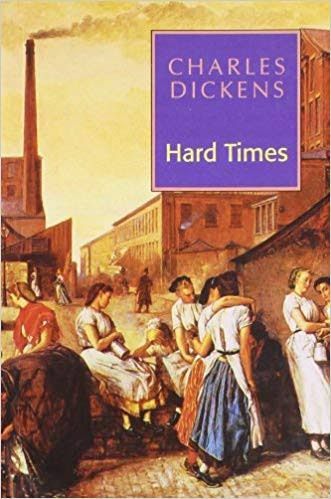Hard Times (Part-2)
Jun 20, 2019 • 55 views

• G.B. Shaw is of the opinion that Dickens might have some knowledge of working class people but it was not enough for a realistic presentation which invariably includes "class manners and customs". Dickens move away from both the radical and democratic position and instead endorses Toryism where Aristocracy are seen both as masters and servants of the people.
• J. HiIlis Miller points out that though the circus becomes symbolic of "a good society" the individual is still defined by his "cooperative submission" to the common activity of horse-riding. In other words, the individual has to forego his uniqueness & get defined by the social role he plays.
• Utilitarianism was a philosophy based on a minimalist view of mad that understood human nature in terms of economic relations alone.
• Dickens’ polemical response to industrial growth, utilitarianism, capitalism, education, economic self-interest and trade unionism is reflected in the novel through Coketown, Gradgrind, Bounderby, Mr. M'choakumchild, Harthouse and Slackbridge.
• Coketown grows out of the novel, soot-coated, black and savage giving the feeling of repetitiveness, monotony and drudgery. Both its streets of inhabitants have lost their uniqueness.
• The repeated use of the word "same" and the phrase "like one another" reveals both the monotony of Coketown and the drudgery of its inhabitants.
• Book 2 introduces this God-forsaken place of which the coketowners are unjustifiably "so patriotic".
• Dickens does not understand Coketown the way he understands London. The sense of intimacy, the closeness, the insider's perspective is missing. However, it is definitely an ideal setting for representatives of a utilitarian philosophy and utilitarian institution.
• The satire both in the choice of the name & presentation of character is inescapable. M'choakumchild is representative of a new school ideology. His name refers to the importation of trained Scottish teachers in English schools.
• Dickens through understanding child, expresses some of the popular criticism against training schools at that time. Educators believe that Dickens’s account of M'choakumchild and the Gradgrind school's object lesson are only partially accurate. It could just be Dickens’s own middle-class emotional reaction to an educational system that he doesn't wish to understand.
• The Sections - "Sowing, Reaping and Garnering" come from an agricultural vocabulary - that describes and sets in contrast, the mechanical world of Coketown.
• The vocabulary of Hard Times is loaded with this sentiment- children are passive "little vessels" or "little pitchers" to pour utilitarian "facts" into.
• Harthouse sees Tom as a whelp person "inconsiderate" and "dissipated". Always in want of money, Tom lives beyond his means and gets "heavily in debt". When he cannot extract money from others he devises a plan to rob Coketown bank. Soon implicated in the bank robbery, Tom becomes instrumental in destroying Stephen Blackpool, gets exposed and escapes to North America and ultimately dies of a fever.
• Gradgrind does not see love or sexual attraction between partners as anything to do with marriage. And Louisa's three romantically loaded questions mean nothing to him.
